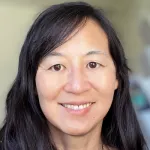
Dr. Priscilla Yang earned her PhD in Bio-organic Chemistry at the University of California, Berkeley. Following postdoctoral training in viral immunology at Scripps Research, she started her independent career at Harvard Medical School, where her laboratory combined chemical and pharmacological approaches to address fundamental and translational problems in virology. She is currently Professor in the Department of Microbiology and Immunology and the Stanford University School of Medicine where she focuses on leading and mentoring a multidisciplinary group of scientists focused on discovery and validation of new antiviral targets; identifying new strategies to achieve broad-spectrum activity and to avoid antiviral resistance; and investigating the function of lipid membranes in RNA virus replication. She is a strong advocate for diversity, equity, and inclusion in science.
Dr. Yang's research group focuses on understanding the mechanisms responsible for viral replication and development of new strategies to combat viral pathogens. They combine chemical biology, medicinal chemistry, and molecular virology approaches to tackle challenges in both basic and translational research.
Over the past decade, the lab's efforts have centered on two significant problems: first, addressing the challenges that limit our current arsenal of antivirals and second, understanding the specificity and function of host lipids in RNA virus replication. The Yang lab is keenly interested in discovery of new antiviral targets and strategies and leveraging these discoveries to develop first-in-class small molecule antivirals. They also have a strong interest in developing or adapting tools from chemistry, chemical engineering, and biophysics to probe new areas of virology.
